3 Keys to Overcome Email Overload – Part 8: Quality of Worklife Balance
This is the 15th in a series of blog posts designed to help you recognise the profound and far-reaching impact email overload has in your life and to offer solutions to help you overcome the challenges it presents.
There are 7 Critical Impacts of Information & Email Overload.
Impact #8: Quality of life & worklife balance
There was a time when there was a distinct separation between work and home. Now employees bring family problems to work and vice versa. As Intel’s white paper concludes, information and e-mail overload affects employees’ lives (and their loved ones) both quantitatively and qualitatively.
Quantitatively, because employees have less of a “life” when they process incoming messages around the clock. Long evening and weekend sessions at the Inbox have become the norm, appropriating time that used to belong to family, friends, and relaxation.
Qualitatively, because when employees are run ragged by the endless pressure of a losing race, their ability to relax and devote time to their life, hobbies, and families is reduced. Long hours might be justified if they felt the pride and joy of a job well done, but even this is denied them as they slip ever backward in their race against the continuing flood of communication.
Constant connection
The other factor is technology (cell phones, laptops, e-mail, text messaging) that provides a continuous cascade of information, both important and trivial. Thanks to this technology, it’s possible to bring work home, staying connected to the office on weekends and even during vacations. For some people, that’s due to a sense that they’re indispensable, and the work couldn’t possibly get done without them.
Others might be worried about their jobs if they’re out of the loop for an extended period. For many, a holiday is no longer a chance to “get away from it all”. Increasingly, people take laptops on vacation, not for leisure but to process work–related e–mail.
Quality of relationships
Constant access to information, communication, and technology has become such a big issue, experts say, that its implications go beyond a lack of productivity and focus at work. E-mail and information overload also eats into the quality of relationships both at school and at home.
"Attention is the bedrock to learning, memory, social connection, and happiness,"
says Barbara Jackson in her book ‘Distracted: The Erosion of Attention and The Coming Dark Age’.
And yet, at many schools and businesses, a culture is developing that rewards immediacy over focus, so that attending to what's new at any given moment takes precedence over long-term goals.
So, what can do you about it?
Here are a 2 quick ideas to help reduce impact of email overload by getting a greater degree of control in the workplace;
Schedule specific time for dealing with email that allows you to handle it during work hours. Handling email communications is a legitimate and important work activity so it should be scheduled into your calendar, just as you do for other important communications (eg: meetings). That way it can be handled during working hours and not left your ‘after hours’, which would be better spent with family, friends or in recreational activities that renew your energies for the next day.
Learn how to handle each email only once, dealing with it the first (and only) time you look at it and using the proven 4D method to keep your inbox under control (preferably empty). That way, you stay up-to-date and don’t have a backlog to catch up with after hours
Why this ezine/blog?
Email is the #1 productivity killer - many say it’s the single biggest waster of time in the modern workplace. It occupies 2.6 hours a day, but 25-28% of this time is unproductive. And volumes are increasing, despite the rise and rise of social media and other collaborative tools.
More and more, email has taken over your day, your week, your work, your life! This series of ezines is designed to help you recognise the profound and far-reaching impact email overload has in your life and offer solutions to help you overcome the challenges it presents.
The aim is to restore email to its rightful place as a facilitator of improved productivity, so that you are the master and it is the slave (rather than the other way round).
All the best!

